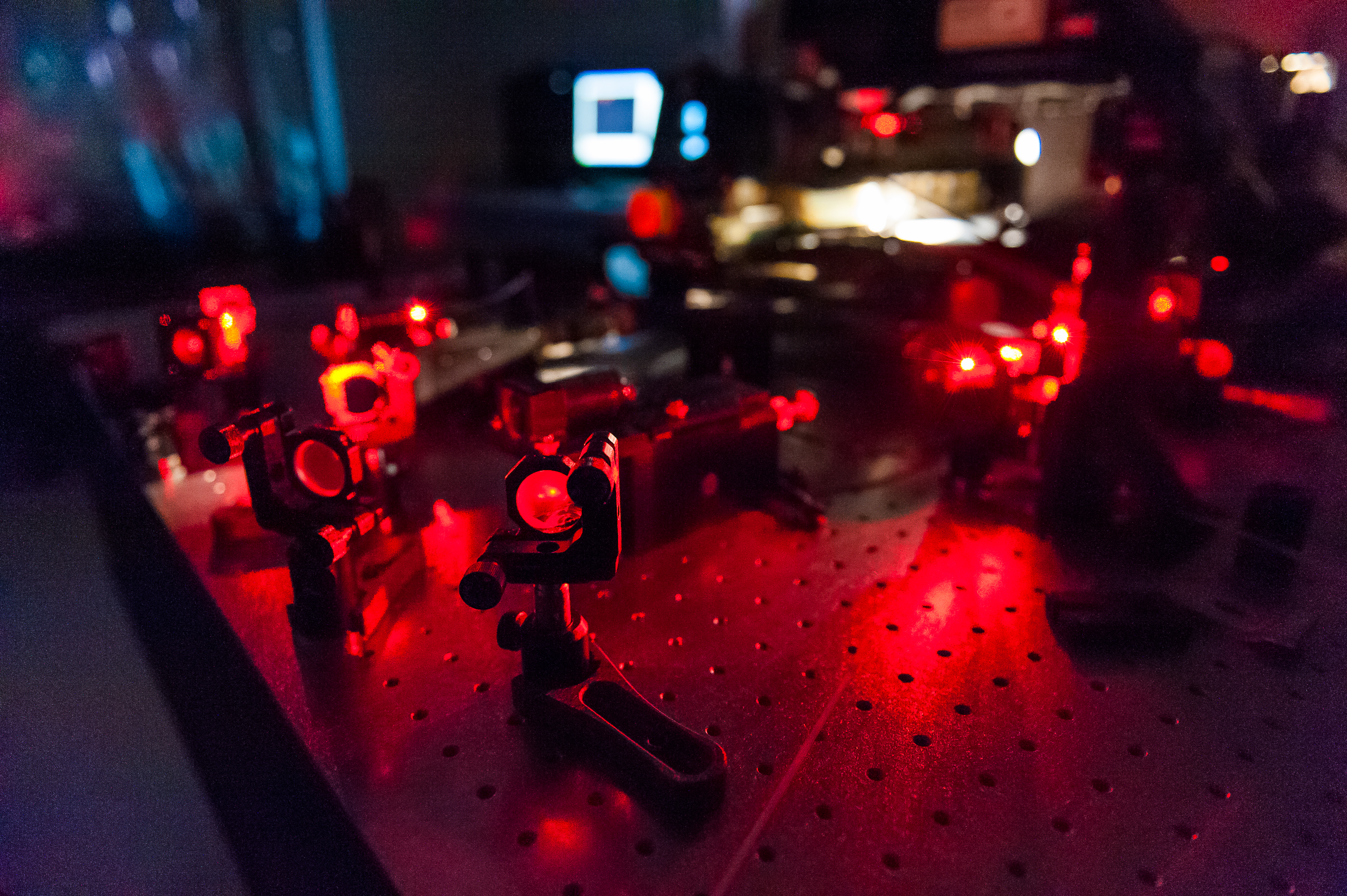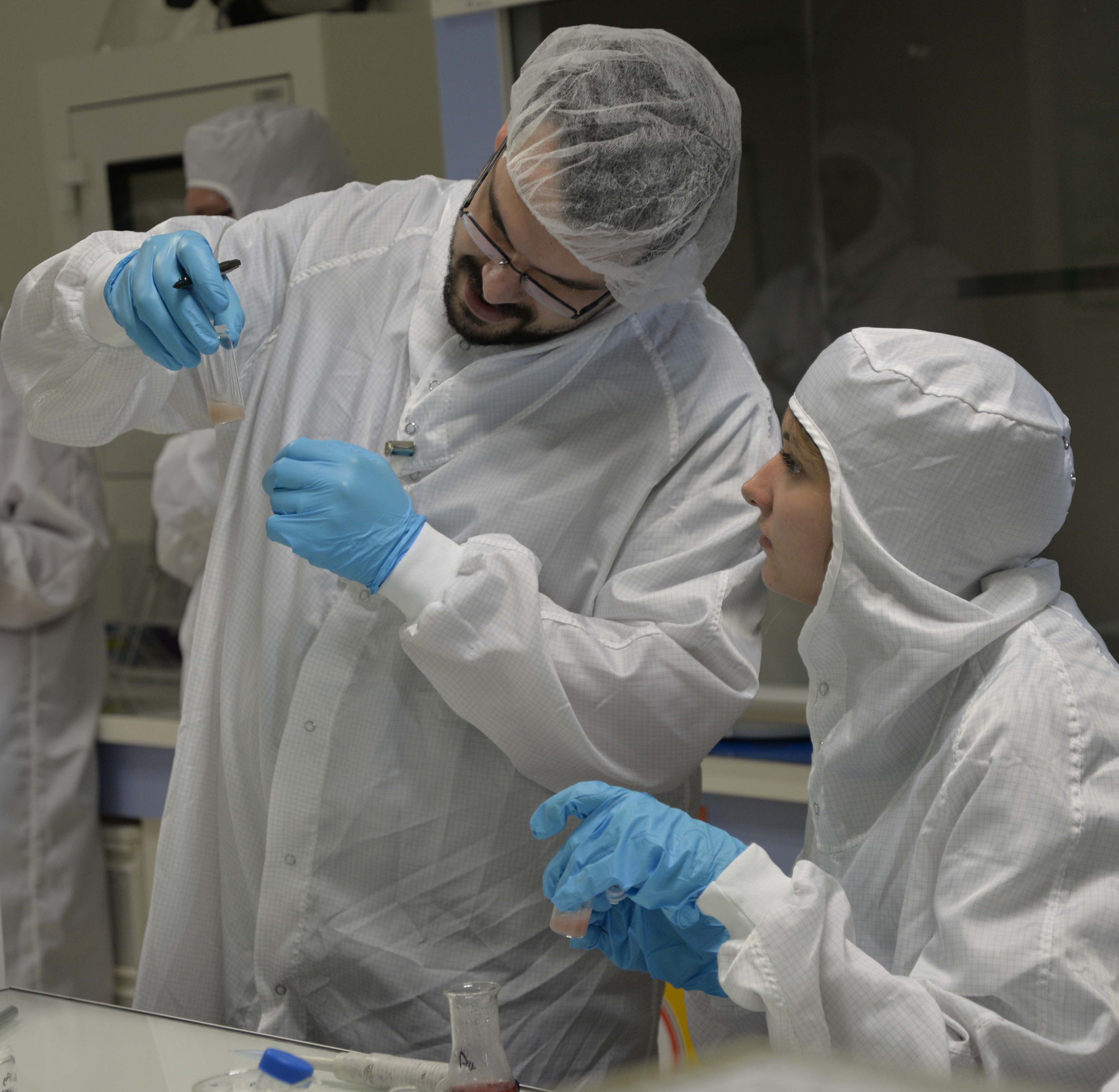In the same section
The Nano-Phot Graduate School (GS) aims at offering an unparalleled programme of excellence, with an international dimension and in direct contact with scientific and socioeconomic stakes related to the use of light, on a nanometric scale and in a sustainable development approach. Creating a global dimension, this GS dedicated to nanophotonics involves research staff in an ambitious education program in order to train the next generations of researchers and professionals at the cutting edge of nanophotonic’s sciences and technologies.
Nano-Phot is based on four pillars:
Nano-Phot is based on four pillars:
- the internationalization of our research and training,
- the cross-fertilization between academics, industry and society,
- the use of innovative teaching methods, involving new teaching technics and tools,
- the promotion of interdisciplinarity in the frame of nano-optics and its applications
Scientific Scope
About 30 years ago, a new topic bridging Optics and Nanotechnology was introduced: nano-optics. This deals with light-matter interaction at the nanoscale, that is at a scale which is much smaller than the light wavelength. At this scale, the role of evanescent waves is crucial and the optical properties of materials are generally different from what they are at the microscale, opening plenty of new avenues and applications to be explored.The scientific objectives of the Nano-Phot GS concern the development of nano-optics on terms of science, technology and applications. Based on this current challenge, four main topics are addressed:
- Emerging materials for nano-optics
- Nano-spectroscopy and nano-sensors
- Fundamental phenomena in nano-optics
- Nano-fabrication for nano-optics

Educational strategy
The Nano-Photo GS will bring a genuine structuration on Troyes and Reims sites by providing a new coherence to the schooling offer in optics, photonics and nanotechnology and by linking it to research structuration, with the involvement of 4 CNRS units. Moreover, the Nano-Phot GS offers to break away from French academic system & traditional schemes in order to best adapt the programme to the needs of the industry stakeholders:- Change the usual global curriculum and develop an original program, customized for each student, including projects and the selection of courses and hosting laboratories
- Propose innovative teaching methods & technologies (online education, immersive classrooms...), currently in progress as part of a project supported by the region “Grand-Est”.
- Better incorporate research and education (student integration to the laboratories from the start of the Master 1), continuous involvement of the researchers to the education program
- Within the courses, offer a broader space to practical aspects, at the opposite of traditional classes formats: “in-class demonstrations, end of “lecture-tutorial-exercises”, laboratory-time, research projects, introduce a feeling of belonging to a given research laboratory
- A win-win situation: students benefit from being introduced to the highest level of scientific research and the research benefits from the involvement of the best students, contributing to its expansion
- Offer a better employability to students by training high-level technologists who will have acquired and validated scientific and professional skills

Date of update 09 November 2020

